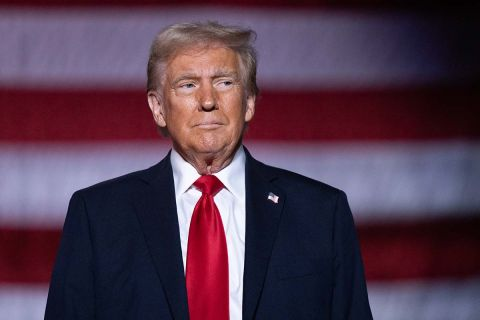Current MHSAA policy allows transgender girls to participate in sports on a case-by-case basis by applying for a waiver. Out of an estimated 175,000 high school athletes across the state, two transgender students currently have waivers, Kimmerly said.
Those two students will be allowed to play sports for now, he added.
Related:
“We’re just waiting for the next step I suppose,” Kimmerly said. “Obviously there’s a conflict here, and it’s going to have to be worked out one way or another,” Kimmerly said, referring to the executive order and the state anti-discrimination law.
Trump’s order, which seeks to ban transgender athletes from participating in women’s sports, directs the federal government to “rescind all funds from educational programs that deprive women and girls of fair athletic opportunities, which results in the endangerment, humiliation, and silencing of women and girls and deprives them of privacy.”
It is now US policy “to oppose male competitive participation in women’s sports more broadly, as a matter of safety, fairness, dignity, and truth,” Trump added.
The order could affect K-12 schools and colleges in Michigan, although legal challenges are expected. Connecticut Attorney General William Tong has vowed to fight the executive order.
Michigan Attorney General Dana Nessel, who last week joined fellow Democrats in other states to challenge Trump’s short-lived federal spending freeze in court, has not indicated whether she plans to sue over the transgender sports order. Her office did not immediately respond to a request for comment.
At the collegiate level, decisions on how to respond to Trump’s order on transgender athletes will likely be made by athletic associations, said Dan Hurley, executive officer of the Michigan Association of State Universities.
The National Collegiate Athletic Association, which regulates athletics at many larger universities in Michigan and across the country, said in a Wednesday statement that the organization will work to align its policy with the order.
